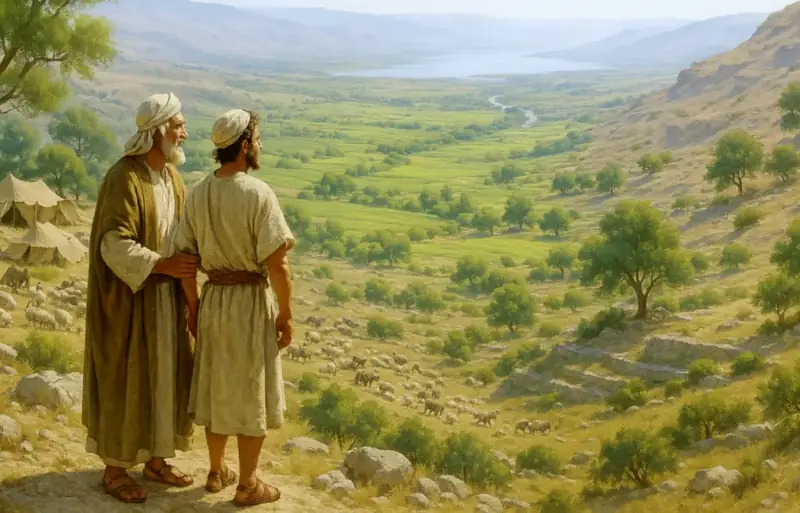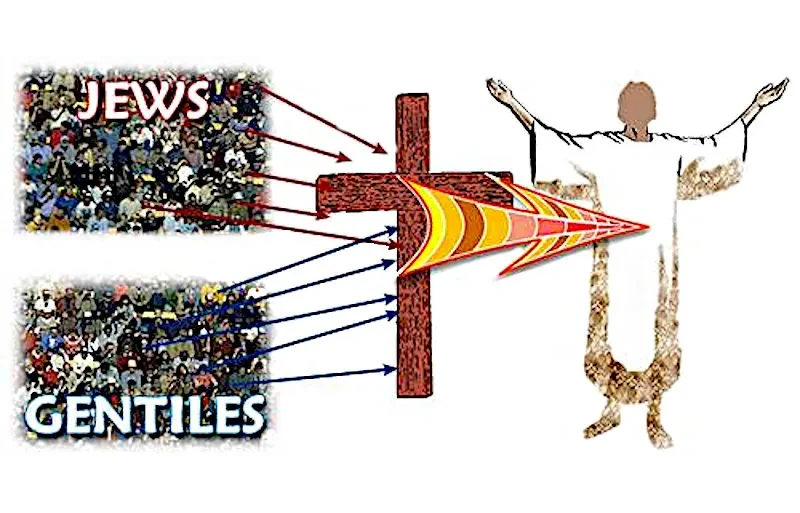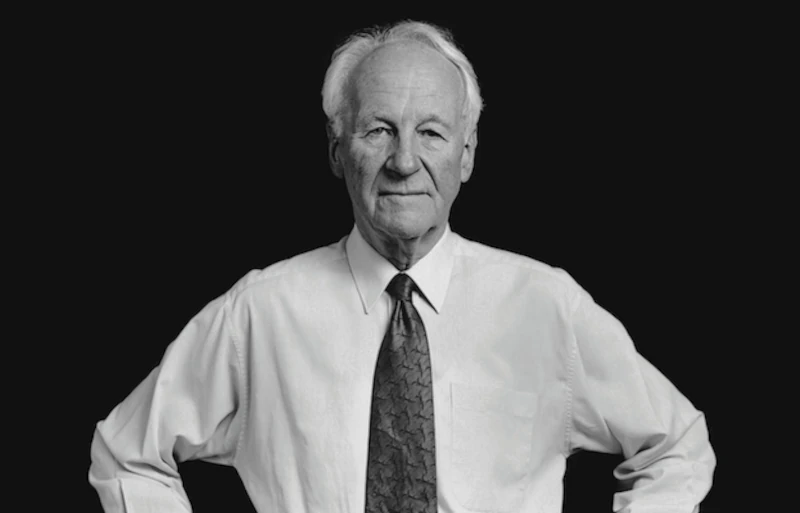Articles & Bible Studies
BELIEF IN GOD
Why Faith Still Matters
Talking about faith these days can feel awkward. Why would anyone still believe in God – and especially the God of the Bible – in a time like ours? Isn’t faith outdated, restrictive, or even irrelevant? Read on ⇒
JESUS CHRIST
The “I Am” Sayings Of Jesus
One of the characteristics of The Fourth Gospel is the “I am” (ego eimi) sayings of Christ. What do these mean? A study of their meaning and significance in context. Read on ⇒
SALVATION
“Born-Again”? How?
No, it’s not by “inviting Jesus into your heart.” Don’t rely on a spiritual experience. Find out what did Jesus actually meant when He said to Nicodemus, “You must be born again?” Read on ⇒
SALVATION
“Saved? From what?”
“Are you saved?” I asked Aby, a friend at school. I was in my early teens, determined to share the gospel with my schoolmates. I will never forget the response I received. Read on ⇒
SALVATION
“Once ‘Saved,’ Always Saved?”
Will – “Once saved, always saved” – hold any water if held against the divinely appointed illustration of Exodus? Read on ⇒
DISCIPLESHIP
Come. Learn. Rest.
Jesus did not call you to become a mere ‘believer’ or a ‘worshipper.’ He wants you to follow Him along a path of obedience. ‘Learning to obey’ is indispensable. Read on ⇒
DISCIPLESHIP
Dimensions of Growth
True discipleship is the need of the hour. We need to unpack biblical metaphors for spiritual growth to help each Christian understand vital spiritual principles. Read on ⇒
DISCIPLESHIP
The Call To Self-Denial
Radical discipleship isn’t about being perfect or having all the answers; it’s about a willingness to deny ourselves, take up our crosses, and follow Jesus, no matter where that leads. Read on ⇒
THE BIBLE
Plug Into God’s Word
The scriptures were meant to be read and heard. The ubiquitous smartphone, and the fancy contraption that delivers audio straight into our ear canals, can revolutionize our interaction with the Bible. Read on ⇒
THE BIBLE
The KJV: A Time To Move On
In 2011, the Church celebrated the 400th anniversary of the release of the King James Bible. Many still value the KJV. Should Christians continue romanticising the KJV? Read on ⇒
MISSION
Out Of The Salt Shaker
“It’s not our job. The Lord will come and fix this broken planet.” This anthem of defeat has crippled the Church. May she find grace to rise up from her state of disgrace and apathy to fulfil her role as the salt and light of this planet! Read on ⇒
EVANGELISM
The Man From George Street
Ray Comfort tells the story of a man who lived in obscurity. Yet, God knew him because he entered into a covenant with God and stayed true to it. God could count upon him to get His work done. Dependability is the greatest ability. Read on ⇒
CHRISTIAN LIFE
Heaven, anyone? Living In The Light Of Eternity
“Are the things you are living for worth Christ dying for?” Do your choices reflect your hope in heaven? When your life on earth ends, will you have truly lived for what matters most? Read on ⇒
CHRISTIAN SPIRITUALITY
The Father Seeks True Worshippers
What did Jesus mean when he said that true worship is “worship in spirit and in truth?” Was Jesus asking his followers to “worship in other tongues?” Read on ⇒
CHRISTIAN SPIRITUALITY
Postmodern Diversity In Christian Devotion
Why must local languages, music, and art forms be suppressed for the sake of one universal style of spirituality? Postmodernism affirms local contexts, individual experiences, and the resultant diversity. Read on ⇒
CHRISTIAN LIFE
Radical Witness: The Fruit of Christ’s Standards
Standards are meaningful only when they are lived. A rule admired but not practiced leaves the world untouched. What happens when Christians take Jesus' words seriously? Read on ⇒
CHRISTIAN LIFE
A Rock Amist Shifting Sands of Culture
How can Christians uphold biblical teachings on sexuality admidst pressure to embrace contemporary societal shifts regarding LGBTQ issues and transgender ideology? Read on ⇒
CHRISTIAN LIFE
Right Belief, Right Living: A Call to Clarity
In a world of shifting ideologies and hybrid spiritualities, the need for discernment has never been greater—especially where culture and religion often blend in subtle but powerful ways, resulting in syncretism. Read on ⇒
CHRISTIAN LIFE
Learning to Think: An Educational Blind Spot
Often, we lean what to think, not how to think. Logic is not an academic luxury, but a civic and intellectual necessity in an age flooded with claims, ideologies, and misinformation. Read on ⇒
THE ORDINANCES
“Do This In Remembrance Of Me”
“Do this in remembrance of me,” said the Lord Jesus. What does ‘this’ refer to? What did Jesus mean? Did Jesus establish the Eucharist or Communion service? Read on ⇒
CHRISTIAN LEADERSHIP
Service: The Essence of Leadership
The Lord Jesus introduced the concept of Servant Leadership to the world. Selfless service defines a leader. It is the essence of true greatness. Read on ⇒
CHURCH LIFE
Churches That Abuse
Does your leader ill-treat Church members in the guise of promoting spirituality? Does your church have any of the signs of abuse mentioned here? A Summary of Enroth’s book, Churches That Abuse Read on ⇒
CHURCH LIFE
Kerala Pentecostals’ Ban on Jewellery
Most Brethren and Pentecostal Churches of Kerala origin deny water baptism and Communion to fellow Christians who wear jewellery. A critical examination. Read on ⇒
CHURCH LIFE
Why do young evangelicals leave their churches?
As a former teacher, I am deeply pained when I think of the younger generation of Christians in countries like the USA or South Korea. Many leave the faith—not realizing it’s just one version of Christianity that offended them. Read on ⇒
THE KINGDOM OF GOD
The ‘Promised Land’: Comparison of Views
What did Jesus and the writers of the New Testament think about Jerusalem, Herod’s Temple, and the “Promised Land?” How does the Christian Zionist view measure up against more modern views? Read on ⇒
THE KINGDOM OF GOD
The ‘Promised Land’: A Christian Perspective
A Christian theological reflection: In 1948, what was it that the Jews needed the most? A homeland? Or, were they in need of the Gospel of Jesus Christ through whom they could inherit Abraham’s promises? Read on ⇒
THE KINGDOM OF GOD
Messiah’s Heavenly Kingdom and Israel’s Restoration
What is the significance of the events that happened on the Day of Pentecost? Did you know that Messianic prophecies in Ezekiel 37 were fulfilled on that day? Read on ⇒
THE KINGDOM OF GOD
Are You Preaching Another Gospel?
The Church is the new humanity that Christ created — a “new humanity in place of the two.” This truth is central to the Gospel. Read on ⇒
THE KINGDOM OF GOD
The Place Of Israel: A Sermon by John Stott
What is the place of Israel in the purpose of God? John Stott thinks that the best way for us to handle this delicate and controversial theme is to get a perspective on the whole of the biblical revelation. Read on ⇒
BIBLICAL THEOLOGY
Covenantal Nomism and the Obedience of Faith
Luther’s reading of Romans led to the Reformation. But was he right in interpreting Romans in the light of Catholicism? Is Judaism a legalistic religion like Catholicism, incompatible with grace? Read on ⇒
BIBLICAL THEOLOGY
Legalism, Anti-nomianism & Obedience
What is ‘legalism’? Does the Law of God have any role to play in a Christian’s life? Philip P. Eapen answers these questions in the light of Christian’s call to the ‘obedience of faith.’ Read on ⇒
BIBLICAL THEOLOGY
Calvinism: The ‘TULIP’ has wilted!
Calvinists emphasize God’s sovereignty at the expense of God-given human free-will. You can either follow Calvinism or believe in John 3:16. Read on ⇒
HERMENEUTICS
Why Read the Bible under an Indian Candlelight?
Why should we read John’s Gospel under the ‘candlelight’ offered by eastern religions when we have ‘sunlight’ offered by the Hebrew Bible & the New Testament? Read on ⇒
MARRIAGE
The Sexes: Equality, Hierarchy, And Peace
Are men and women “equal”? Are they different? What causes conflict between men and women? Were “male headship” and patriarchy clever human inventions? How can there be peace between the sexes? Read on ⇒
MARRIAGE
No Takers For Sarah’s Example?
Should a wife obey her husband? Christians are divided on this issue. What if the husband asks the wife to commit a sin? Didn’t God create them equal? Aren’t they supposed to be submit to each other? Read on ⇒
CREATION CARE
Christian Stewardship of the Environment
In recent decades, the world has witnessed an alarming deterioration of the environment. As Christians, we uphold the principle of stewardship over Earth’s resources. Read on ⇒
SPIRITUAL WARFARE
‘Spiritual Warfare: Show Me Where It Is Written …’
The Bible is the only authentic source of accurate information on spiritual warfare. A lot of what is taught about spiritual warfare has no scriptural basis. We should be determined not to learn about spiritual warfare from extra-biblical sources. Read on ⇒
SPIRITUAL WARFARE
Beware of Hypnotherapy
Is hypnotism or hypnotherapy harmless, scientific tools for self-healing, self-rejuvenation, and success? Can it be divorced from its occultic associations? This article was orginally published by David Cloud. Read on ⇒
ESCHATOLOGY
The Evangelical “Pot” calling the Camping “Kettle” Black!
Evangelicals overlook Jesus’ clear teachings regarding His “Second Coming” just as Harold Camping ignored Jesus’ warning against predicting the date and time of His “appearance.” Read on ⇒
ബൈബിൾ
വിശുദ്ധ ബൈബിൾ
ഏത് ഭാഷയിലും എക്കാലത്തെയും മികച്ച ഗ്രന്ഥം വിശുദ്ധ ബൈബിളാണു്. ജനം ഏറ്റവും കൂടുതൽ വാങ്ങുന്ന ഗ്രന്ഥവും ബൈബിൾ തന്നെ. ഈ ഗ്രന്ഥത്തെ പരിചയപ്പെടാം. ശ്രേഷ്ഠമായ സ്വൎഗ്ഗീയ ജ്ഞാനത്തിന്റെ പുതിയ ലോകത്തിലേക്ക് പ്രവേശിക്കാം. തുടൎന്നു വായിക്കുക ⇒
ബൈബിൾ
ചെവിയുള്ളവർ കേൾക്കട്ടെ!
തിരുവെഴുത്തുകൾ വായിക്കപ്പെടുവാനല്ല വായിച്ചു കേൾപ്പിക്കപ്പെടുവാനാണു് എഴുതപ്പെട്ടതു്. ലോകത്തിന്റെ ശബ്ദകോലാഹലങ്ങളിൽ നിന്നു അകന്നു് അൽപ്പനേരം വേറിട്ടിരുന്നു് ദൈവ വചനം ശ്രവിക്കുക. തുടൎന്നു വായിക്കുക ⇒
ഇടയ ശുശ്രൂഷ
ശ്രേഷ്ഠ ഇടയനായ യേശുവിന്റെ മാതൃക
ദൈവസഭയ്ക്ക് ഒരു ശ്രേഷ്ഠ ഇടയൻ മാത്രമേയുള്ളൂ. അത് യേശു ക്രിസ്തുവാണ്. സഭാപരിപാലന ശുശ്രൂഷ ചെയ്യുന്ന ഏവരും യേശുവിന്റെ മാതൃക പിൻപറ്റേണം. തുടൎന്നു വായിക്കുക ⇒
ദൈവരാജ്യം
അതിഥി: ഒരു കഥയും അൽപ്പം കാൎയ്യവും
രണ്ടായിരം വർഷങ്ങൾക്കു് മുമ്പുള്ള കണക്കും പാരമ്പര്യവും പറഞ്ഞ് ആരെങ്കിലും വന്നാല്, നിങ്ങളുടെ വീട് അഥവാ നാട് നിങ്ങള് വിട്ടു കൊടുക്കുമോ? തുടൎന്നു വായിക്കുക ⇒
ദൈവരാജ്യം
മ്ശിഹയുടെ സ്വൎഗ്ഗരാജ്യവും ഇസ്രയേലിന്റെ പുനരുദ്ധാനവും
സ്വൎഗ്ഗരാജ്യം സമീപിച്ചിരിക്കുന്നു എന്നു് യേശു പ്രസംഗിച്ചു. പെന്തക്കൊസ്തു നാളിൽ ആ രാജാവിനെയും തന്റെ സ്വൎഗ്ഗീയ രാജ്യത്തെയും മാനുഷിക പ്രതീക്ഷകൾക്ക് അതീതമായി ദൈവം പരിശുദ്ധാത്മ പകൎച്ചയിലൂടെ വെളിപ്പെടുത്തി. തുടൎന്നു വായിക്കുക ⇒
ദൈവരാജ്യം
യേശുവിന്റെ വാഗ്ദത്തവും ഡാർബിയുടെ അടവുകളും
മഹാമാരികളും പ്രകൃതി ദുരന്തങ്ങളും പെരുകുന്ന ഈ കാലത്ത് നാം സാധാരണ കേൾക്കുന്ന ഒരു സന്ദേശമാണ്: “ഏതു സമയത്തും കൎത്താവിന്റെ വരവ് സംഭവിക്കാം.” അത് എത്രമാത്രം ശരിയാണ്? തുടൎന്നു വായിക്കുക ⇒
ദൈവരാജ്യം
ഇതു് ദൈവരാജ്യത്തിന്റെ സുവിശേഷമോ?
പത്രോസിന്റെ പ്രസംഗത്തിന്റെ ആദ്യവും അവസാനവും മാത്രമേ പെന്തക്കൊസ്തുകാർ വായിക്കാറുള്ളൂ. അതു മൂലം അപ്പൊസ്തൊലിക സുവിശേഷത്തിന്റെ കാതലാണ് നാം നഷ്ടപ്പെടുത്തിയതു്. തുടൎന്നു വായിക്കുക ⇒
ക്രിസ്തീയ ജീവിതം
ദൃശ്യ മാധ്യമങ്ങളും മലയാളി വിശുദ്ധരും
സിനിമാ പോസ്റ്ററിൽ നോക്കുന്നതു് പോലും പാപമാണു് എന്നു് പ്രസംഗിച്ച അപ്പച്ചന്മാരുടെ കൊച്ചുമക്കൾ ദിവസവും ഒരു സിനിമയെങ്കിലും കാണുന്നു. സിനിമ ഒത്തുവന്നില്ലെങ്കിൾ ഇരുനൂറോ മുന്നൂറോ റീൽസ് കണ്ടു് സമയം കൊല്ലും. തുടൎന്നു വായിക്കുക ⇒
ക്രിസ്തീയ ജീവിതം
ഹിപ്നോതെറാപ്പി: ഒരു ക്രൈസ്തവ അവലോകനം
രോഗ സൗഖത്തിനും ഉന്മേഷത്തിനും ഉതകുന്ന ഒരു ഉപാധിയാണോ ഹിപ്നോട്ടിസം? അതു് പാൎശ്വഫലങ്ങൾ ഇല്ലാത്തതും സുരക്ഷിതവുമായ ശാസ്ത്രീയ പ്രക്രിയ ആണോ? അതിനു വിധേയമാകുന്നതു ക്രിസ്തീയ വിശ്വാസത്തിനു വിരുദ്ധമാണോ? തുടൎന്നു വായിക്കുക ⇒
ക്രിസ്തീയ സഭ
ആത്മീയതയുടെ മറവിൽ അക്രമം
ആത്മീയതയുടെ മറവിൽ സഭാ നേതൃത്വം അംഗങ്ങളുടെമേൽ അധികാര ദുർവിനിയോഗം നടത്തുന്നുണ്ടോ? ഇവിടെ പരാമർശിച്ചിരിക്കുന്ന ഏതെങ്കിലും ലക്ഷണങ്ങൾ നിങ്ങളുടെ കണ്ടെത്തിയാൽ നിങ്ങൾ രക്ഷപെടേണം! തുടൎന്നു വായിക്കുക ⇒
ക്രിസ്തീയ സഭ
“എന്റെ ഓൎമയ്ക്കായി ഇതു ചെയ്വിൻ”
“എന്റെ ഓൎമയ്ക്കായി ഇതു ചെയ്വിൻ” എന്നു് യേശു കൽപ്പിച്ചു. “ഇതു്” എന്നാൽ എന്താണു്? ഇന്നു കാണുന്ന തിരുബലിയും കൎത്തൃമേശയും വാസ്തവത്തിൽ യേശുവിന്റെ വാക്കുകൾക്കു അനുസൃതമാണോ? തുടൎന്നു വായിക്കുക ⇒










































